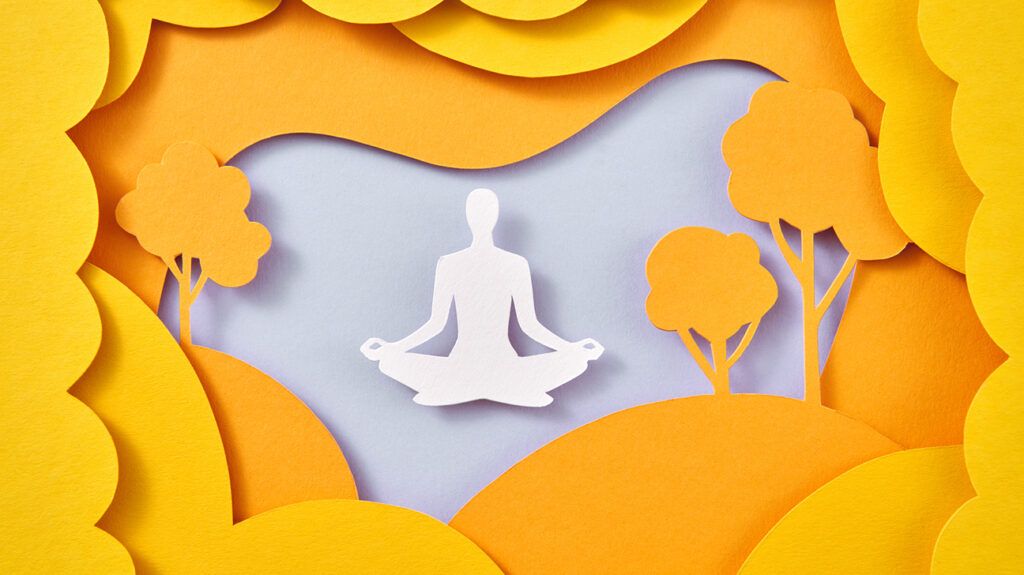Meditation may help with anxiety, depression, stress, and muscle tension. And a good relaxation script can make it easier to enter a state of calm.

Life can be stressful. Challenges can come at you from all different directions.
Having the right tools can help you better cope with stress when it comes your way. Whether you’re having a hard time at home, work, school, or living with a mental health condition like depression or anxiety, meditation may help.
A simple way to practice meditation at home involves using a relaxation script, which might make it easier to get into a state of calm and release the day’s tension.
Scripts provide guidance or a narrative for your mind as you relax. They often use imagery to help guide you as you meditate.
A
- stress reduction
- overall well-being
- promoting relaxation
Relaxation techniques that often use scripts to guide them include:
- Progressive muscle relaxation. Also called progressive relaxation, this technique involves tensing and releasing different muscles to help relax your body.
- Visualization. Also known as guided imagery, visualization involves focusing on setting, images, or calming objects to reproduce a calming effect on the body and mind.
- Breathing exercises. Breathing exercises may use a very simple script to guide you on when to breathe in, hold your breath, and breathe out. Scripts may also include visualization, so you have something to focus on.
According to the
- pain management
- anxiety
- depression
- sleep issues
- cancer and the side effects of cancer treatment
Ready to start your first relaxation session? Consider having the following on hand:
- An audio recording of your relaxation script. Though you can read the script yourself, you may find it more effective to close your eyes and focus. You can do this by recording the script ahead of time and playing it or having a friend or family member read the script for you as you relax.
- Comfortable seating area. It’s easier to relax if you have a good spot to sit. It may be helpful to find yourself a comfortable chair, sofa, or even bed to sit and relax.
- Adjust your environment. It may be a good idea to silence your cell phone, make sure the room temperature is comfortable, dim the lighting, and make adjustments to create a relaxing environment.
Try using the following script to help you achieve a state of relaxation. Bear in mind that this is just a sample of a relaxation script. You can modify it or look for additional relaxation scripts to help you meditate.
Try this script
Sit back, relax, and close your eyes. Picture a relaxing place, like a beach, a mountain top, a forest, or anywhere you find peace.
Imagine what you see, hear, and smell in your imagined oasis. And start to breathe in slowly, allowing the air to fill your lungs. Hold your breath for a moment.
Slowly release your breath as you continue to picture your surroundings. What do you hear, see, or smell? As you take another breath, feel any tension you’re holding onto drain from your muscles.
As you breathe in and out, let go of any negative thoughts from the day. Free your mind of worry as you continue to picture your happy place.
Draw from the serenity of the moment. Allow the calmness of your imagined oasis to wash away your worries and drain the tension from your muscles.
Visit here again, whenever you like, to relax and instill a sense of calm. You can also visit other areas you find relaxing. The choice is yours, but remember you can always come back for an escape from the tension and stress of everyday life.
Relaxation scripts can help you get into a meditative state. Scripts provide instructions on visualization, muscle relaxation, and breathing.
Though you can record your own scripts or have someone read them aloud, you may find professionally recorded scripts more helpful. If you’re new to meditation, you might find smartphone apps like Headspace or Calm helpful for getting started.
If apps aren’t quite for you and you want more guidance, consider looking for a therapist who provides individual or group relaxation sessions.
Know that your journey to relaxation and stress relief doesn’t have to be perfect. And meditation sessions don’t need to be hours long. Just a few minutes a day may be enough to make your worries feel a little less overwhelming.
